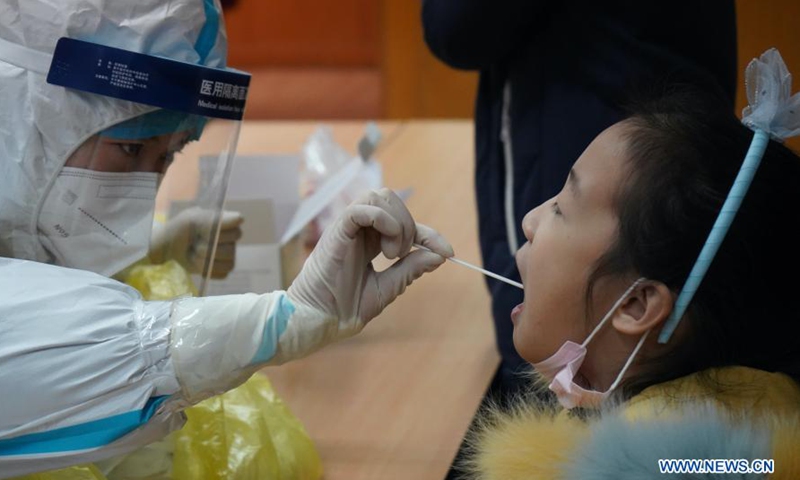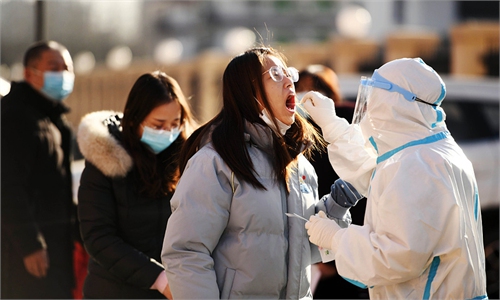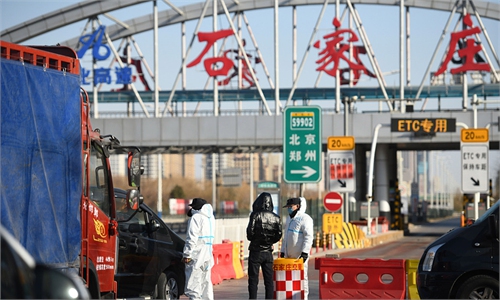Chinese vice premier visits coronavirus-hit Hebei, stresses strict control on movement

A medical worker collects a swab sample from a child at a community in Yuhua District of Shijiazhuang, capital of north China's Hebei Province, Jan. 7, 2021. Shijiazhuang started to conduct citywide nucleic acid tests covering all residents on Wednesday. Photo:Xinhua
Amid the ongoing COVID-19 outbreak in North China's Hebei Province, Chinese Vice Premier Sun Chunlan stressed during her visit to the province that Hebei must tighten control over the movement of people in key areas of the province and areas close to Beijing.
Sun visited Hebei from Wednesday to Friday to investigate the epidemic control and prevention work in key areas including the epidemic-stricken counties and communities, the local disease control and prevention center, and major quarantine hospitals, Xinhua reported on Friday.
She noted that the latest cluster of infections has been developing rapidly, and most of those infected are older people from rural areas.
Hebei Province reported 14 confirmed COVID-19 cases and 16 asymptomatic cases on Saturday, bringing the total to 334 local infections since January 2.
More than 85 percent of the total are from rural areas, and the median age of those cases is 46.5. Community transmission and multigenerational transmission have occurred, making the situation of epidemic control and prevention in Hebei complex and severe, Sun said.
To curb the spread of the outbreak, it's necessary to strengthen traffic management and control in regions around Beijing, Hebei, and in key areas within the province, Sun stressed.
Hebei should complete province-wide COVID-19 screening as soon as possible to identify potential carriers, and deploy all technological measures to accelerate epidemiological investigation and pin down the source of the outbreak, which should also include an examination of the local environment, she added.
Rural areas, schools, senior care centers, prisons, and religious venues are the key areas that should be closely monitored. For communities already in lock-down, management staff should ensure that sufficient daily necessities and heat are being supplied.
Global Times


